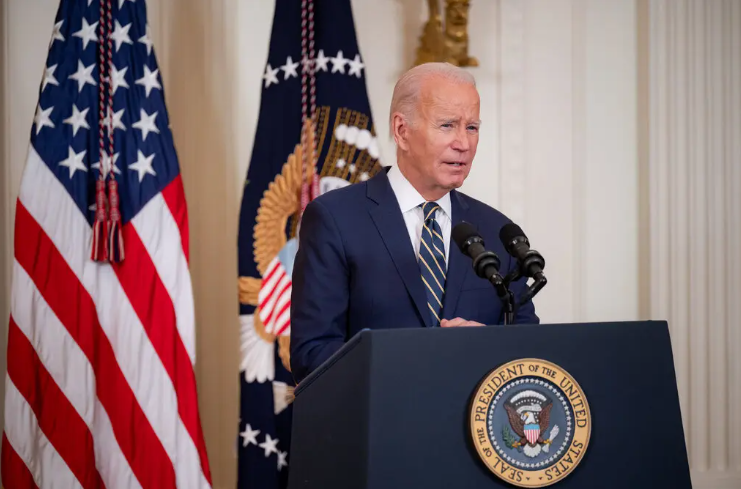President Joe Biden ordered his team to share evidence of Russian war crimes in Ukraine with the International Criminal Court — a stunning shift of U.S. policy toward the tribunal and a move that goes against the Pentagon’s recommendation.
A U.S. official confirmed that the administration briefed lawmakers on the decision, though the White House has yet to publicly announce the handover of materials. Sens. Dick Durbin (D-Ill.) and Lindsey Graham (R-S.C.), members of the Senate Judiciary Committee who support the evidence transfer, said Wednesday night in a statement that “we are pleased that the administration is finally supporting the ICC’s investigation.”
The New York Times was first to report the news.
The U.S. did not sign the Rome Statute to become a member of the ICC and therefore argues that it’s not subject to the court’s jurisdiction. Washington feared that an ICC prosecutor would have the power to investigate the actions of U.S. troops in war — a position held by Democratic and Republican administrations since the 1998 statute establishing the court.
But the war in Ukraine, and the Biden administration’s promise to help Kyiv hold Moscow accountable for its atrocities, have cooled the heated relationship between the U.S. and the tribunal. Lawmakers from both parties had urged the White House to provide evidence, signaling a change in bipartisan attitudes toward The Hague-based court.
The State Department and Department of Justice were also in favor of the move, mainly to show the U.S. stands for international law and human rights. “Many State Department people over many years think the U.S. allergy to the court is bonkers and counter to U.S. interests,” said a State official familiar with such topics, who like others spoke on the condition of anonymity to discuss a sensitive internal deliberation.
U.S. officials reportedly have intelligence about Russian war crimes in Ukraine, including information that shows the Moscow government is holding thousands of Ukrainian children in “integration programs” in camps in Russia and Russian-occupied Crimea. However, they have not yet shared that evidence with The Hague.
Defense Secretary Lloyd Austin has made clear his opposition to providing evidence to the court, both in private and public. He told a Senate subcommittee in May that he believed the move to share intelligence with the court could set a worrying precedent, and expressed concerns about “reciprocity going forward.”
He added that he will “always prioritize the protection of U.S. military personnel in anything we do.”
“The Pentagon certainly had reservations,” said a person familiar with the situation.
Still, a second U.S. official said DOD supports alternative methods to pursue investigations into Russia’s human rights abuses and war crimes in Ukraine. “The DoD strongly supports pathways to justice and accountability for war crimes committed in Ukraine. There are multiple paths toward the goal of accountability,” the official said.
Nahal Toosi and Joe Gould contributed to this report.


